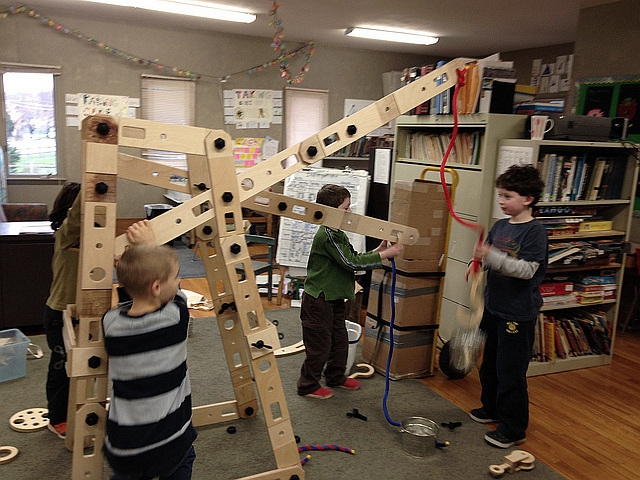- Read What Makes Our School Unique (PDF)
Individualized Education
Teachers work together developing curriculum for each child, designing the academic, artistic, and interpersonal environment to optimize learning for all students. Teachers plan each student’s daily contract based on the child’s needs, particular style of learning, and interests. Children work at their own pace and may be at various stages of learning in different subjects.
As they become more sophisticated in handling this information, children take an active role in their contract development. They’re encouraged to learn to organize their time and manage their work. This is an ongoing process throughout the child’s experience at The New School.
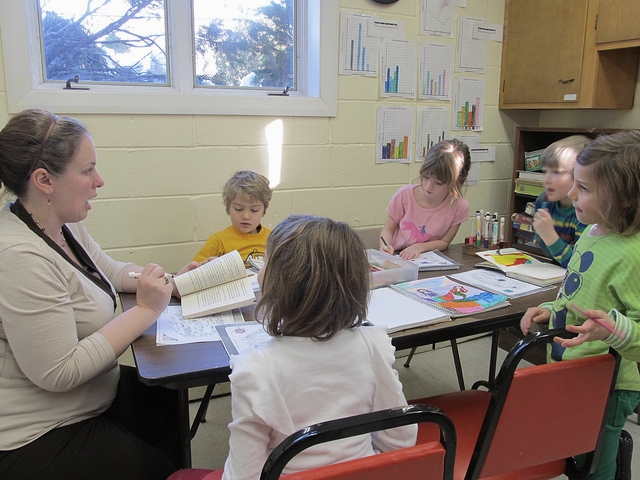
Personalized Assessment
Errors are viewed by teachers and children as natural opportunities for learning. Portfolios and narratives are shared with parents twice a year, based on the teachers’ close observation, on-going communication, and attention to goals. Click here to read more about how children are assessed at The New School.
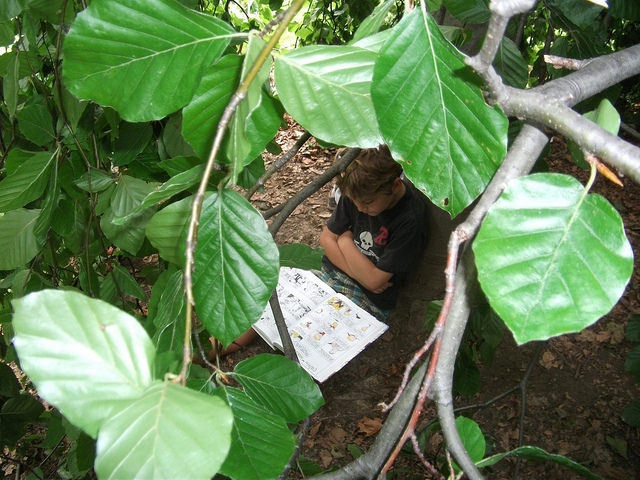
Multi-age Setting and Mentoring
Children in grades K-8 work side-by-side in a collaborative and nurturing atmosphere. Multi-age mentoring stimulates rich interaction and inventive problem solving, giving children the opportunity to take on roles as teachers and students with classmates. This allows for reinforcement of skills in many settings. It also engenders a familial atmosphere as children learn to negotiate and temper their actions with older and younger children. In our multi-age setting, children are able to find true peers regardless of age.
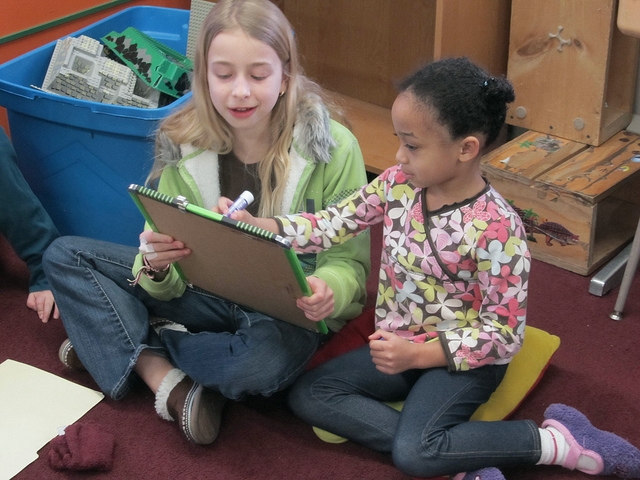
Hands-on, Small-group Activities
A highlight of small group cooperative projects is the conversation that occurs. Students guide and mentor one another, seeking input and participation. Learning is engaging as the students participate in games, interactive discussions, and hands-on exploration.
Click here to read about a typical day at The New School.
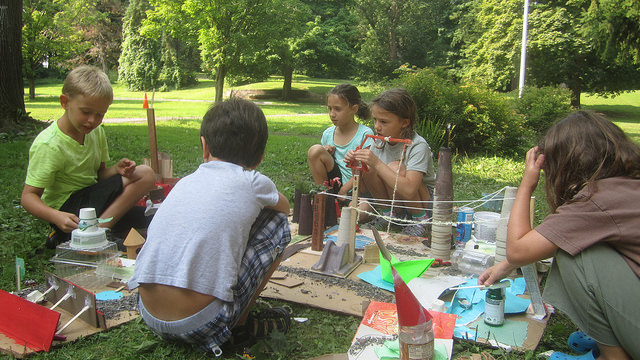
Real World Interaction
Frequent field trips include museums, theater, skiing, library, and overnight camping trips, which build trust and school community. Thoughtful activism emerges through yearly ‘Making the World a Better Place’ projects. The curriculum is enriched by interchange with the Syracuse area community, for example, Mystery Guests who bring their expertise and passion before the students in a wide variety of fields (the children have 3 minutes to ask yes/no questions to determine why this individual is visiting).
Daily outdoor play is highly valued as it provides children with opportunities to learn and problem-solve through creative play and experience physical movement which helps them focus on academic challenges.

Respect and Collaboration
The school’s ground rules: Take Care of Yourself, Take Care of Others, and Take Care of Materials, are referenced by students as they process complex interactions under the guidance of adults. Issues emerging in the classroom are discussed and solutions brainstormed by the children.
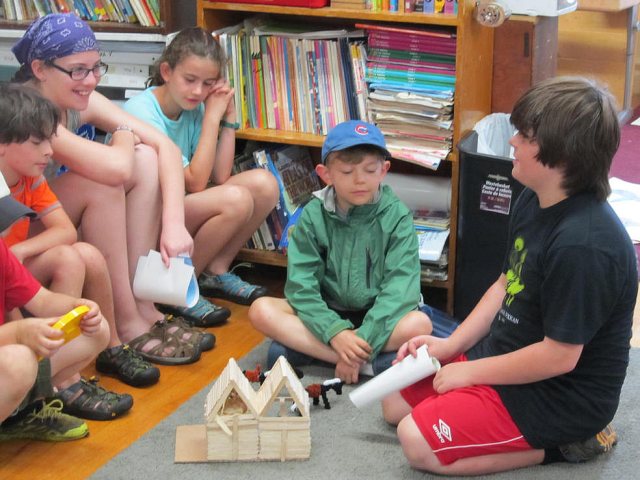
Problem Solving
We enable children to experience competency in interpersonal skills and internalize the processes for best communication and problem solving. Problem solving is a complex set of skills — learning to identify the problem, articulate the problem, break it into solvable parts, imagine multiple solutions, and evaluate risk can take a lifetime to develop. The school is a laboratory for children to work on developing these skills.
Teachers function as facilitators, advisors, and safe havens rather than as enforcers. Our expectation is that children must take time and effort to solve a problem with and/or without adult support. When problems are more complex, parents, teachers, and children get together to work on them. We make time in our schedule for problem solving sessions individually, paired, and small group and large group, as appropriate.
